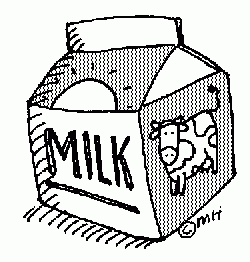 Moderation. Does anybody know what this means anymore?
Moderation. Does anybody know what this means anymore?
Schools across the Western world are demonstrating knee jerk reactions to the “childhood obesity crisis” by banning anything at all that includes sugar or fat. School lunches and cafeteria foods are still full of crap and chemicals, but everything else is fair game for an inquisition-like search and banishment. As we saw with Jamie Oliver’s school dinners program in the UK, there is usually a reaction to this, and parents bristle at someone telling them how to raise (and feed) their kids.
There are so many things wrong on every side of this. First, the nanny state that provokes schools to haul a parent in for a talking to when junior pulls a chocolate cookie out of his home-packed lunch. And in retaliation, the parent makes something like a birthday cake a point of contention.
In this piece in the UK’s Telegraph, writer Judith Woods explains how she is baking a birthday cake for her child despite the kid’s school having banned the things. The school’s theory being that if every kid shows up with sweets to share on their birthday then that’s too much crap for the kids to be having on a regular basis. And while I’m a defender of all things cakey – I’m going to sort of agree and reiterate the “moderation” rule.
Because while I agree with and defend Woods’ right to let her kid have birthday cake on their own birthday – I don’t agree that it needs to go to school. In a class of 20 – 25 kids, that works out to a lot of cake over the course of a school year. Not to mention that it looks like a little bit of dick-waving and one-up-man-ship as parents compete for the best and biggest cake (it’s probably cheaper than a party with a bouncy castle, clown and pony rides, but still…). Have a party for your kid in their own home and by all means have cake, but I don’t believe it should be in schools in that context. I can’t remember taking cake or cupcakes to school for the whole class on my birthday – or getting cake or treats for anyone else’s birthday. Despite the fact that they’d provided us with sweet, sweet sugar, any kid who did that in my day would have gotten themselves pegged as a show off. It speaks to society’s obsession with making kids into little stars and reinforcing how special they are – which isn’t good for the kid, or society.
Parties and treats for holidays seem like enough occasions for kids to bring food to school – with someone ensuring that most of the snacks are healthy. In that context, there is room for a slice of cake or some cookies or chips, and kids learn to associate party food with actual parties.
There are people out there who don’t know how to feed their kids, and their ignorance makes life tough for everyone else as authorities work on the lowest common denominator factor and apply condescending rules to everyone. But we also need to ensure that kids aren’t expecting treats and party food at every turn – by allowing kids to take cake to school to celebrate their own birthday, we’re creating a sense of entitlement that is not only fuelling the childhood obesity problem but society’s downfall.
Have a party for your kid; have cake, by all means – but do it at home. Don’t force others to match your efforts, don’t create more reasons to stuff their little faces full of junk, and don’t coddle them into believing that cake for the whole class – for every student’s birthday – is normal or healthy. Moderation and common sense – if more people used these, we wouldn’t need a cupcake nanny state.
 I came across the following piece when compiling the weekday Food For Thought column, but I’ve got a bit more to say about this than I could fit into a typical line of snark.
I came across the following piece when compiling the weekday Food For Thought column, but I’ve got a bit more to say about this than I could fit into a typical line of snark. Moderation. Does anybody know what this means anymore?
Moderation. Does anybody know what this means anymore?
 Southern Ontario’s food community was shocked earlier this week when news came down that
Southern Ontario’s food community was shocked earlier this week when news came down that 
 A few weeks ago, I was sitting in
A few weeks ago, I was sitting in 